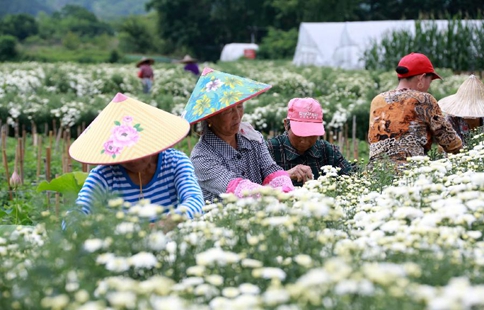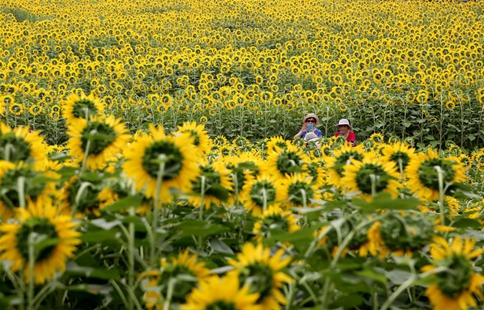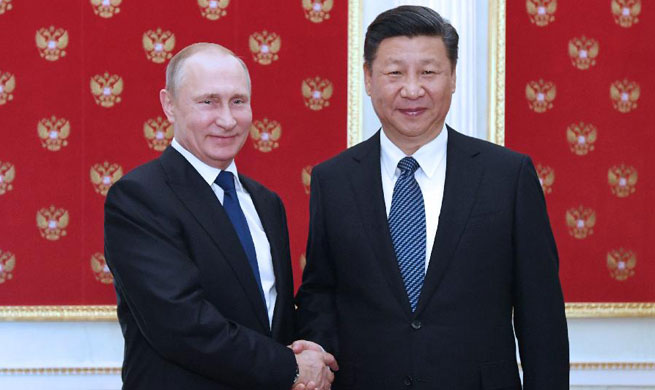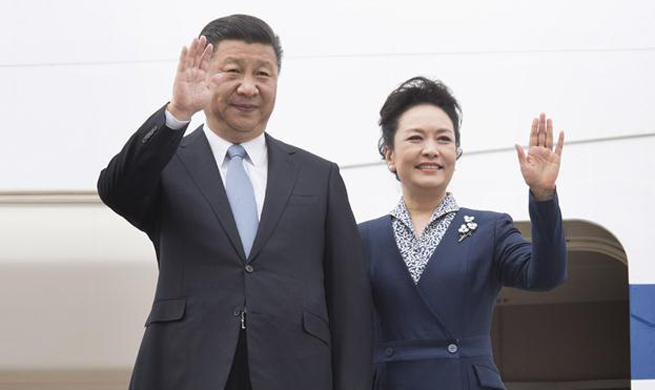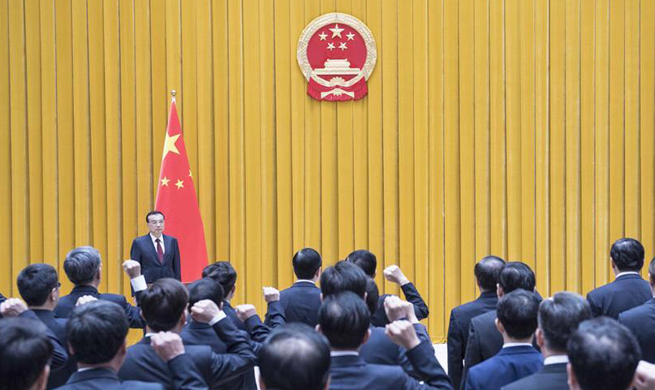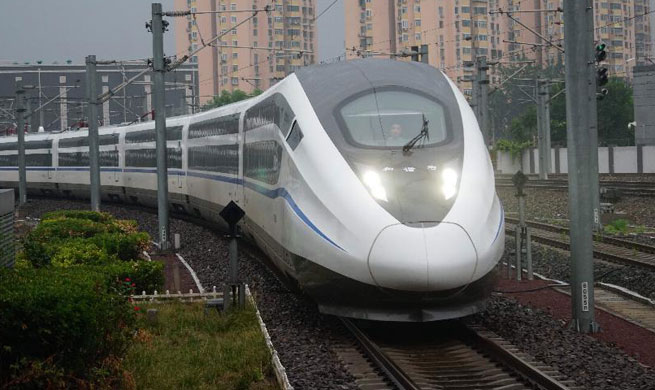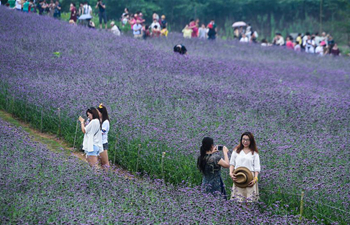URUMQI, July 4 (Xinhua) -- At the entrance to a small village in northwest China's Xinjiang Uygur Autonomous Region lies a graveyard full of tombs in a variety of styles.
Some are mounds with a tombstone in front, while others are rectangular with tile-decorated arc roofs. They are in the graveyard of Momatereck village of Qiman township, Aksu Prefecture, shared by Han and Uygur villagers.
The village of 380 households consists of five ethnic groups, mostly Han and Uygur.
"We eat, farm and dance together when we live, and we will rest in peace side by side after death," said Tursun Niyaz, a Uygur villager. "Death won't do us apart."
In addition to the different tomb styles, Han and Uygur funerals also vary.
Uygur people, mostly Muslims, usually wrap the body in a white sheet, place it into an underground cave, and bury the body while Imams pray alongside.
Han people traditionally dress the body in a shroud, lay it in coffin, and bury the coffin into a pit, leaving a mound for the relatives to mourn at. However, due to land shortages most bodies are now cremated.
Han villager Hou Zuoyan, 36, remembers how his uncle was buried after dying in a car accident in 1995.
"Uygur neighbors trekked two kilometers of muddy road carrying the coffin to the graveyard for burial," he recalls, adding that they prepared a Uygur-style dinner for all the villagers.
Hou was born and raised in the village after his parents migrated there from Gansu Province in 1961. Like other villagers, they live on growing rice and cotton.
In 2010, when looking for part-time workers to harvest cotton, he met his wife, Meriyem Hupur, falling in love with the Uygur woman at first sight.
"The wage he paid me was twice as much as the others," Meriyem, now a mother of two girls, recalls with a smile.
The marriage was opposed by Meriyem's parents due to their different customs and religions. However, she stole her ID card and household registry booklet to secretly marry Hou.
To show their displeasure, Meriyem's parents did not attend the wedding ceremony.
The elderly couple's attitude changed when Meriyem delivered their first granddaughter.
"Uygur people have a tradition of taking care of their daughters and their new-born babies. My in-laws like my daughters very very much," Hou says, adding they often stop by to visit.
Hou also respects his wife's beliefs, such as eating halal food and celebrating festivals such as Eid al-Fitr.
Meriyem says she will not intervene in their children in finding Mr. Right. "No matter what ethnic groups their husbands belong to, it is OK if only they are happy," she said.
Last year, the local township government organized the rebuilding of the road to the graveyard. The road was named "Minzutuanjie," meaning ethnic unity.
"Many villagers, including a 90-year-old Uygur man, came with shovels and volunteered to help," said Li Chunlin, Communist Party chief of Qiman, adding that a cleaning room would soon be built at the graveyard for the convenience of a Uygur-style funeral.
"Although we preserve different customs and have different styles of tombs, we are brotherly neighbors, dead or alive," he said.






